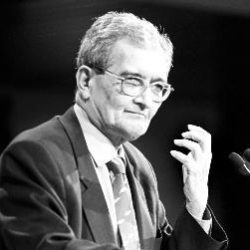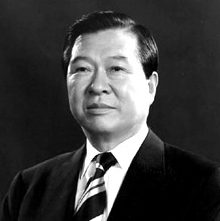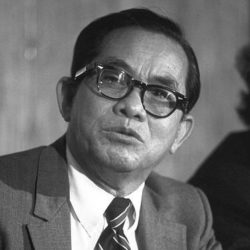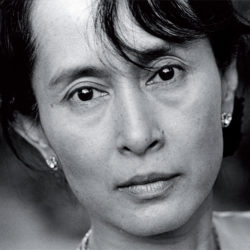 |
AMARTYA SEN Nobel laureate for economics Amartya Sen, in “Democracy as a Universal Value,” which appeared in the Journal of Democracy 10.3 (1999): What exactly is democracy? We must not identify democracy with majority rule. Democracy has complex demands, which certainly include voting and respect for election results, but it also requires the protection of liberties and freedoms, respect for legal entitlements, and the guaranteeing of free discussion and uncensored distribution of news and fair comment. Even elections can be deeply defective if they occur without the different sides getting an adequate opportunity to present their respective cases, or without the electorate enjoying the freedom to obtain news and to consider the views of the competing protagonists. Democracy is a demanding system, and not just a mechanical condition (like majority rule) taken in isolation. Viewed in this light, the merits of democracy and its claim as a universal value can be related to certain distinct virtues that go with its unfettered practice. Indeed, we can distinguish three different ways in which democracy enriches the lives of the citizens. First, political freedom is a part of human freedom in general, and exercising civil and political rights is a crucial part of good lives of individuals as social beings. Political and social participation has intrinsic value for human life and well-being. To be prevented from participation in the political life of the community is a major deprivation. Second…democracy has an important instrumental value in enhancing the hearing that people get in expressing and supporting their claims to political attention (including claims of economic needs). Third–and this is a point to be explored further–the practice of democracy gives citizens an opportunity to learn from one another, and helps society to form its values and priorities. Even the idea of “needs,” including the understanding of “economic needs,” requires public discussion and exchange of information, views, and analyses. In this sense, democracy has constructive importance, in addition to its intrinsic value for the lives of the citizens and its instrumental importance in political decisions. The claims of democracy as a universal value have to take note of this diversity of considerations. The conceptualization–even comprehension–of what are to count as “needs,” including “economic needs,” may itself require the exercise of political and civil rights. A proper understanding of what economic needs are–their content and their force–may require discussion and exchange. Political and civil rights, especially those related to the guaranteeing of open discussion, debate, criticism, and dissent, are central to the process of generating informed and considered choices. These processes are crucial to the formation of values and priorities, and we cannot, in general, take preferences as given independently of public discussion, that is, irrespective of whether open interchange and debate are permitted or not. |
 |
PRESIDENT KIM DAE JUNG Korean President Kim Dae Jung, from his Nobel lecture, given Dec. 10, 2000: In the decades of my struggle for democracy, I was constantly faced with the refutation that Western-style democracy was not suitable for Asia, that Asia lacked the roots. This is far from true. In Asia, long before the West, the respect for human dignity was written into systems of thought, and intellectual traditions upholding the concept of demos took root. “The people are heaven. The will of the people is the will of heaven. Revere the people, as you would heaven.” This was the central tenet in the political thoughts of China and Korea as early as three thousand years ago. Five centuries later in India, Buddhism rose to preach the supreme importance of one’s dignity and rights as a human being. There were also ruling ideologies and institutions that placed the people first. Mencius, disciple of Confucius, said: “The king is son of heaven. Heaven sent him to serve the people with just rule. If he fails and oppresses the people, the people have the right, on behalf of heaven, to dispose of him.” And this, 2,000 years before John Locke expounded the theory of the social contract and civic sovereignty. In China and Korea, feudalism was brought down and replaced with counties and prefectures before the birth of Christ, and civil service exams to recruit government officials are a thousand years old. The exercise of power by the king and high officials were monitored by robust systems of auditing. In sum, Asia was rich in the intellectual and institutional traditions that would provide fertile grounds for democracy. What Asia did not have was the organizations of representative democracy. The genius of the West was to create the organizations, a remarkable accomplishment that has greatly advanced the history of humankind. Brought into Asian countries with deep roots in the respect for demos, Western democratic institutions have adapted and functioned admirably, as can be seen in the cases of Korea, Japan, the Philippines, Indonesia, Thailand, India, Bangladesh, Nepal, and Sri Lanka. In East Timor, the people went to the polling stations to vote for their independence despite the threat to their lives from the savage militias. In Myanmar, Madam Aung San Suu Kyi is still leading the struggle for democracy. She retains wide support of the people. I have every confidence that there, too, democracy will prevail and a representative government will be restored. I believe that democracy is the absolute value that makes for human dignity, as well as the only road to sustained economic development and social justice. Without democracy the market economy cannot blossom, and without market economics, economic competitiveness and growth cannot be achieved. |
 |
JOVITO SALONGA Former Senate President and Chairman Emeritus of the Liberal Party of the Philippines Jovito R. Salonga, from The Message of Hope, published in 1975 during the height of Martial Law: We believe in the urgency and wisdom of change. Our conviction is that best human arrangements are imperfect and must be subject to continuing improvement and renewal. Even if one man rule were to suddenly disappear, we would still be engaged in the task of speaking the truth and working for freedom and justice…The first task is to speak the truth with boldness and sincerity…This is satyagraha, the force of truth to which Mahatma Gandhi devoted his entire life. We believe that when a system becomes so unjust and oppressive that more and more people are minded to resist its commands, a deliberate and public refusal to obey becomes a supreme act of conscience…Our people who do not approve of one-man rule, on the one hand, or the Communist order, on the other, should now begin to reflect on what the third alternative should be. In matters of national concern, truth is arrived at only if there is responsible freedom of expression. That freedom must therefore be restored and maintained. Justice also demands that the right of every man, woman and child of this nation to integral human development be recognized and rendered operative. This means that we must reconstruct a society in which every individual shall have rightful access to the resources and basic values—spiritual as well as material—which he will need to develop himself to the highest level of his potentialities. This access is what makes him free. Such a society can be best established and maintained only under a government that is participatory, a government in which the people are free to take part in the decisions that affect their livelihood and their lives; a government in which those to whom the people entrust such powers are accountable to the body politic; a government in which the mechanisms exist to make that accountability not fiction but fact. A commitment to truth, justice and freedom: Let that be our third alternative. |
 |
AUNG SAN SUU KYI Burmese opposition leader Aung San Suu Kyi, from her acceptance speech as recipient of the 5th Annual Gandhi Award, given Oct. 2, 1995: It is only through our disciplined efforts that we can achieve the highest norms of human development that cover political stability, sustained economic growth and social harmony. But first the people have to be convinced that it is in their own interests to develop discipline: discipline has to be the result of a general acceptance of the need for all of us to work together in mutual trust and understanding. The Burmese saying “grabbing somebody by the throat to raise him to heaven” is one that has no appeal whatsoever for me. It is most unlikely that anybody would ever reach heaven, or any other state of bliss, through such violent means. The way of democracy is to create mutual trust and understanding through free and open discussion and debate. It is by this way that we can learn to settle our differences without resorting to compulsion or violence and to weld unity out of the diversity that is the wonder of our human world. People may be compelled to act against their inclinations; they may be bribed to set aside their conscience. But they cannot be forced to give their hearts and minds to any cause that they do not truly believe to be worthwhile. |
 Unit 409, 4/F La Fuerza Plaza 2, 2241 Don Chino Roces Ave. corner Sabio St., 1231 Makati City, Philippines
Unit 409, 4/F La Fuerza Plaza 2, 2241 Don Chino Roces Ave. corner Sabio St., 1231 Makati City, Philippines
 +632 8819 60 71
+632 8819 60 71
 info@cald.org
info@cald.org
